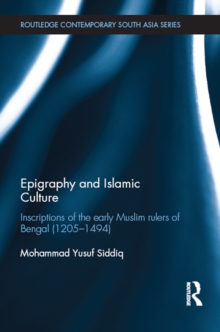
Employment, Poverty and Rights in India PDF
by Dayabati Roy
Part of the Routledge Contemporary South Asia Series series
Description
In comparison to other social groups, India's rural poor - and particularly Adivasis and Dalits - have seen little benefit from the country's economic growth over the last three decades. Though economists and statisticians are able to model the form and extent of this inequality, their work is rarely concerned with identifying possible causes.
Employment, Poverty and Rights in India analyses unemployment in India and explains why the issues of employment and unemployment should be the appropriate prism to understand the status of wellbeing in India. The author provides a historical analysis of policy interventions on behalf of the colonial and postcolonial state with regard to the alleviation of unemployment and poverty in India and in West Bengal in particular. Arguing that, as long as poverty - either as a concept or as an empirical condition - remains as a technical issue to be managed by governmental technologies, the 'poor' will be held responsible for their own fate and the extent of poverty will continue to increase. The book contends that rural unemployment in India is not just an economic issue but a political process that has consistently been shaped by various socio-economic, political and cultural factors since the colonial period. The analysis which depends mainly on ethnography extends to the implementation of the 'New Rights Agenda', such as the MGNREGA, at the rural margin.
Challenging the dominant approach to poverty, this book will be of interest to scholars working in the fields of South Asian studies, Indian Political Economy, contemporary political theories, poverty studies, neo-liberalism, sociology and social anthropology as well as development studies.
Information
-
Download - Immediately Available
- Format:PDF
- Pages:204 pages
- Publisher:Taylor & Francis
- Publication Date:23/05/2018
- Category:
- ISBN:9781351065412
Other Formats
- Paperback / softback from £38.99
- Hardback from £130.00
- EPUB from £2.99
Information
-
Download - Immediately Available
- Format:PDF
- Pages:204 pages
- Publisher:Taylor & Francis
- Publication Date:23/05/2018
- Category:
- ISBN:9781351065412










